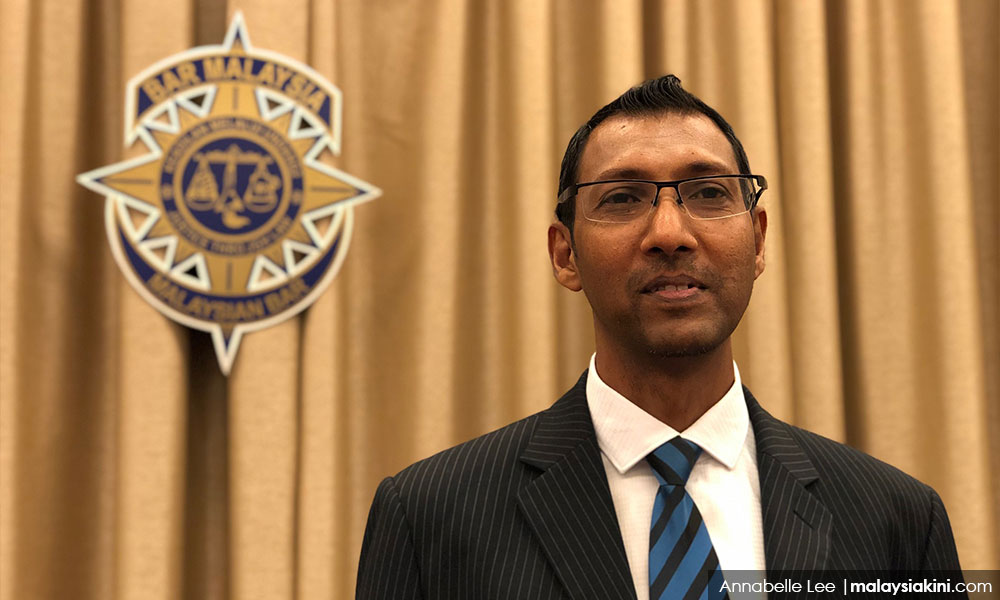Several lawyers have expressed concerns with the new ordinance on battling "fake news" with the main issue being the interpretation of "fake" itself.
Lawyer Mohamed Haniff Khatri Abdulla (above) said the keyword "fake news", as stated in the ordinance, is too general and the disputed statement should be proven as fake news in court.
"The so-called fake statement should be established as indeed fake in terms of facts in court.
"But if the government disagrees with a certain opinion, will the court just accept it as fake? It's just an opinion.
"So, it is left to be decided on how the court will solve this issue," Haniff said in a statement.
The court, Haniff said, has to be more cautious when considering the ex parte applications as the person who allegedly spread the fake news is not being represented.
"So, the court has to be more active and ask relevant questions to confirm that the said statement is fake.
"Otherwise, you will have a situation where the applicants apply for unreasonable orders," he said.
In relation to that, Haniff questioned if any ex parte order would be verified by the inter partes.
"I'd believe that the ex parte order will only remain within a certain period and will have to be verified by inter partes," he said.
Interestingly, he said, what is more problematic in the ordinance is that those who are fined by the government cannot apply to dismiss the ex parte order.
'The law is quite draconian'
"(This law) is quite draconian. It is quite difficult to give further comment on this, but we will wait and see to evaluate how the court uses the provision," Haniff added.
Lawyer Muhammad Rafique Rashid Ali echoed the same opinion on the interpretation of "fake news".
"The term fake news defined under the ordinance is wide-ranging. Who decides? And it also covers news, information and the material on Emergency Proclamation.
"Definitely prone to be abused," Rafique said.
He stressed that there are already sufficient laws to curb fake news.
"Why the need for this when there are already sufficient laws in place. The Communications and Multimedia Act 1998, the Sedition Act 1948 and the Penal Code. All these are in place and more than sufficient. Already there are various laws to handle this issue," he said.
Rafique also highlighted that the ordinance overpowers the Evidence Act 1950, which is "quite worrying".

Bar Council president Salim Bashir also addressed the same matter.
"Our preliminary views are that some parts of the sections undermine the rule of law and fair trial. Primarily, Section 10 seems to have abrogated the operations of the Evidence Act 1950.
"Evidential requirements are crucial for a fair trial when certain facts or allegations are to be proven, whether oral or documentary.
"Section 12 of the Ordinance runs contrary to the provision under the Criminal Procedure Code as to the admission of accused by way of a statement, and it does not provide avenues for challenges under Section 24 of the Evidence Act," Salim said.
In regard to the inconsistency with the Evidence Act, the ordinance states that “this part shall have effect notwithstanding anything inconsistent with the Evidence Act 1950 [Act 56]”.
The Emergency (Essential Powers) (No 2) Ordinance takes effect from today.
Perpetrators who spread "fake news" in writing, videos, audio recordings or in any other forms that may convey "words or ideas" will face action.
The punishment would be a fine not exceeding RM100,000 or imprisonment for a term not exceeding three years or both and in the case of a continuing offence, a further fine not exceeding RM1,000 for each day the offence continues after conviction. - Mkini




No comments:
Post a Comment
Note: Only a member of this blog may post a comment.